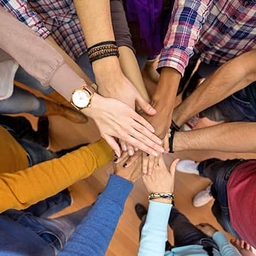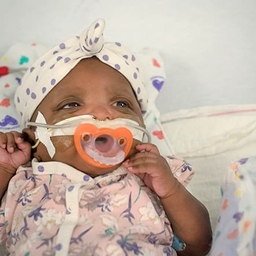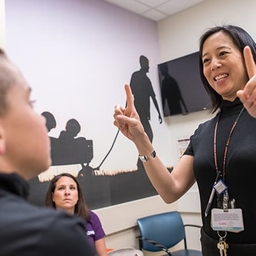Increasing Mask Compliance in Children With Down Syndrome
Sep 30, 2020
Have a child with Down syndrome who hates wearing a mask? Experts at CHOP say repeated exposure and positive reinforcement can build compliance.
Our team of electrophysiologists — pediatric cardiologists who specialize in caring for children with heart rhythm problems — have a combined 100-plus years of experience treating babies, children and young adults. We will make sure your child receives the highest level of care and support.
Sep 30, 2020
Have a child with Down syndrome who hates wearing a mask? Experts at CHOP say repeated exposure and positive reinforcement can build compliance.

Sep 28, 2020
CHOP and 38 other health systems in 45 states and Washington, DC have committed to addressing racism and the public health disparities caused by racism.
Sep 29, 2020
Suspensions disproportionately affect low income, Black and Hispanic families and may severely limit access to employment and healthcare.
Sep 28, 2020
In a study published in Nature Cell Biology, CHOP researchers describe pathway and drug that could stimulate lung tissue repair in COVID patients.
Oct 1, 2020
The Division of Infectious Diseases continues to expand and has welcomed several new additions to our clinic team.

Sep 24, 2020
One of the first of its kind in the world, the CHOP Neonatology chronic lung disease program was designed to be a clinical and research home for infants with BPD receiving neonatal intensive care throughout the surrounding region and nation at large.

Sep 24, 2020
A new study from CHOP demonstrates that a device measuring how the pupil responds to light can show clear differences in concussions.
Sep 23, 2020
This year's International NASHDAY was celebrated virtually in 2020 due to COVID-19. NASHDAY raised awareness about non-alcoholic fatty liver disease (NAFLD).
Sep 22, 2020
Read this case study about a patient who received a liver transplant at Children’s Hospital of Philadelphia (CHOP) during COVID-19.
Sep 21, 2020
Using genome sequencing technology, researchers found potential causal mutations differ between ancestral groups, which may impact treatment.